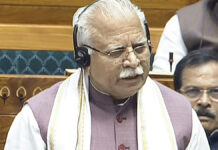In recent years, there has been a growing recognition of the importance of mental health and its impact on overall well-being. Yet, despite increased awareness, stigma surrounding mental illness persists, preventing many individuals from seeking help and accessing the support they need. It is time to break the silence, challenge stereotypes, and prioritize mental health as a fundamental aspect of human health and dignity. The stigma surrounding mental illness is deeply entrenched in society, perpetuated by myths, misconceptions, and fear of the unknown. This stigma can lead to discrimination, social isolation, and barriers to employment, housing, and healthcare for individuals living with mental health conditions. It also creates a culture of silence and shame, preventing open conversations about mental health and discouraging individuals from seeking help when they need it most. Breaking the stigma begins with education and awareness. It is essential to dispel myths and misconceptions about mental illness and promote accurate information about the causes, symptoms, and treatment of mental health conditions. By fostering understanding and empathy, we can create a supportive and inclusive environment where individuals feel safe to speak openly about their mental health and seek help without fear of judgment or discrimination. Moreover, challenging stigma requires a shift in societal attitudes and behaviors towards mental health. This involves promoting a culture of acceptance, compassion, and respect for individuals living with mental illness. It means recognizing that mental health is an integral part of overall well-being and that seeking help for mental health issues is a sign of strength, not weakness. In addition to raising awareness and challenging stigma, it is crucial to prioritize mental health promotion and prevention efforts. This includes promoting positive mental health practices such as stress management, resilience-building, and self-care. It also involves creating supportive environments in schools, workplaces, and communities that promote mental well-being and provide access to mental health resources and support services. Furthermore, investing in mental health services and resources is essential to ensure that all individuals have access to quality mental health care when they need it. This includes expanding access to mental health screening, assessment, and treatment services, as well as integrating mental health care into primary care settings and community-based programs. It also involves addressing systemic barriers to mental health care, such as lack of insurance coverage, provider shortages, and stigma within the healthcare system. As we work to break the stigma surrounding mental illness and promote mental well-being, it is essential to recognize that we all have a role to play in creating a mentally healthy society. By challenging stigma, promoting awareness, and prioritizing mental health promotion and prevention efforts, we can build a future where everyone has the opportunity to thrive mentally, emotionally, and socially. It is time to break the silence, end the stigma, and prioritize mental health for all.

Dogra Herald is the media of J & K, breaking language and geographical barriers, connecting J & K to the rest of India.
0191 245 4946
info@dograherald.com
Latest articles
Internal Democracy is pride of BJP: Rajni Sethi
DH NEWS SERVICEjammu, Jan 27The Bharatiya Janata Party (BJP), one of the world's largest political parties, thrives on its inclusive slogan, "Sabka...
Ram Temple a milestone for UP towards $1-trillion economy: CM Yogi
NEW DELHI, Jan 23Aday after the grand consecration ceremony of Lord Ram in Ayodhya on Monday, a...
AIIMS doctors go on strike today
iamjkstarr - 0
Doctors of the All India Institute of Medical Sciences (AIIMS) on Monday announced that they go on a strike in solidarity with doctors across...

























